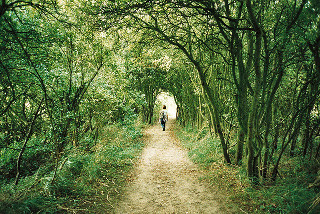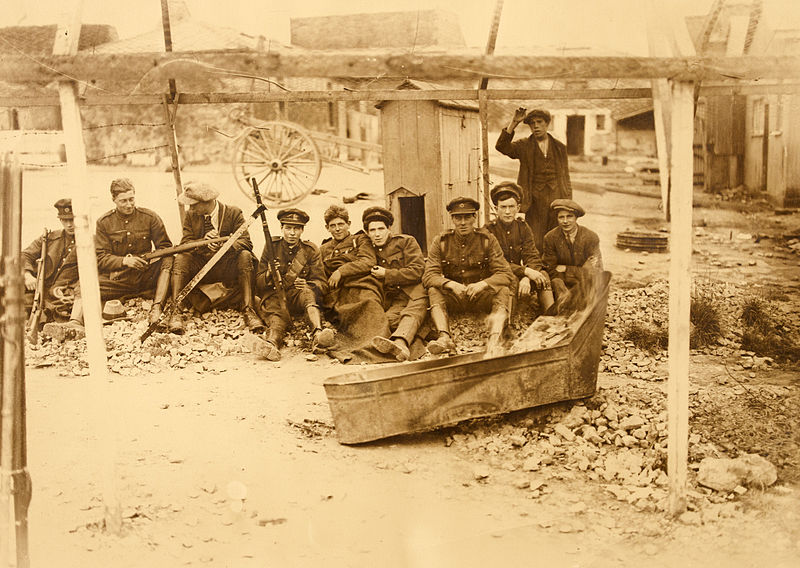-
A Sound of Thunder

This week in class, we’re reading “A Sound of Thunder” by Ray Bradbury. In Ray Bradbury’s short story “A Sound of Thunder,” a man goes back in time to hunt a Tyrannosaurus rex and inadvertently changes the future. As we read, we will be discussing the themes of Fate & Free Will, Man vs. Nature,…
-
Parent Guide: There Will Come Soft Rains

This week in class, we’re reading “There Will Come Soft Rains” by Sara Teasdale. In “There Will Come Soft Rains,” nature is indifferent to the conflicts and suffering of mankind. As we read, we will be discussing the themes of Man vs. Nature and War & Peace as they relate to the text. We are…
-
The Road Not Taken

This week in class, we’re reading “The Road Not Taken” by Robert Frost. Published in 1916, this poem is one of the most frequently cited and most misunderstood of Frost’s poems. As we read, we will be discussing the themes of Fate & Free Will and Identity as they relate to the text. We are…
-
The Sniper

This week in class, we’re reading “The Sniper” by Liam O’Flaherty. In Liam O’Flaherty’s “The Sniper,” a sniper during the Irish Civil War survives a brief conflict but suffers a terrible loss. As we read, we will be discussing the themes of Comedy & Tragedy, Death, and War & Peace as they relate to the…
-
English 30-1 March 2020 Midterm: The Blind Side
DIRECTIONS: Write a well-organized composition on the topic below. The most profound discovery that we can make is our discovery of self. Our identity rests in the kind of people we are. To understand who we are and to develop fully as human beings, we must explore the nature of our humanness and the purpose…
-
Invictus

his week in class, we’re reading “Invictus” by William Ernest Henley. William Ernest Henley (1849-1903) was an English poet, critic, and editor. His best-known poem is “Invictus,” published in 1875, which he wrote just following the amputation of his foot due to tuberculosis. As we read, we will be discussing the themes of Fate & Free…
-
Nothing Gold Can Stay

This week in class, we’re reading “Nothing Gold Can Stay” by Robert Frost. Robert Frost (1874-1963) was one of the most popular and critically respected American poets in history. His poems frequently employ rural scenes from the New England countryside. “Nothing Gold Can Stay,” published in 1923, uses nature to describe aging and the inevitable…
-
Parent Guide: Travel

This week in class, we’re reading “Travel” by Robert Louis Stevenson. Robert Louis Stevenson (1850-1894) was a Scottish novelist, poet, essayist, and travel writer. In this poem, the narrator speaks of his wish to travel the world, one day, when he is “a man.” As we read, we will be discussing the theme of Growing…
-
If

This week in class, we’re reading “If” by Rudyard Kipling. In “If,” the speaker sets out a list of rules by which he thinks his son should live. As we read, we will be discussing the themes of Friendship & Family, Growing Up, and Honor & Courage as they relate to the text. We are…
-
Telephone Conversation

This week in class, we’re reading “Telephone Conversation” by Wole Soyinka. In Wole Soyinka’s poem “Telephone Conversation” the speaker is asked to disclose how dark they are when they attempt to rent an apartment. As we read, we will be discussing the theme of Prejudice & Discrimination as it relates to the text. We are…
